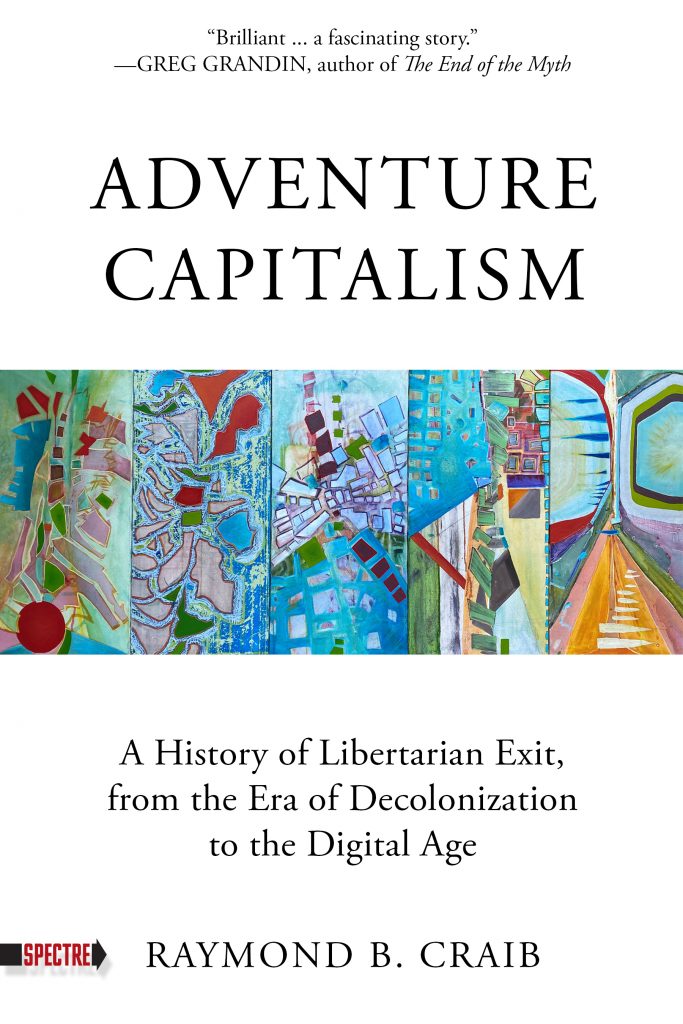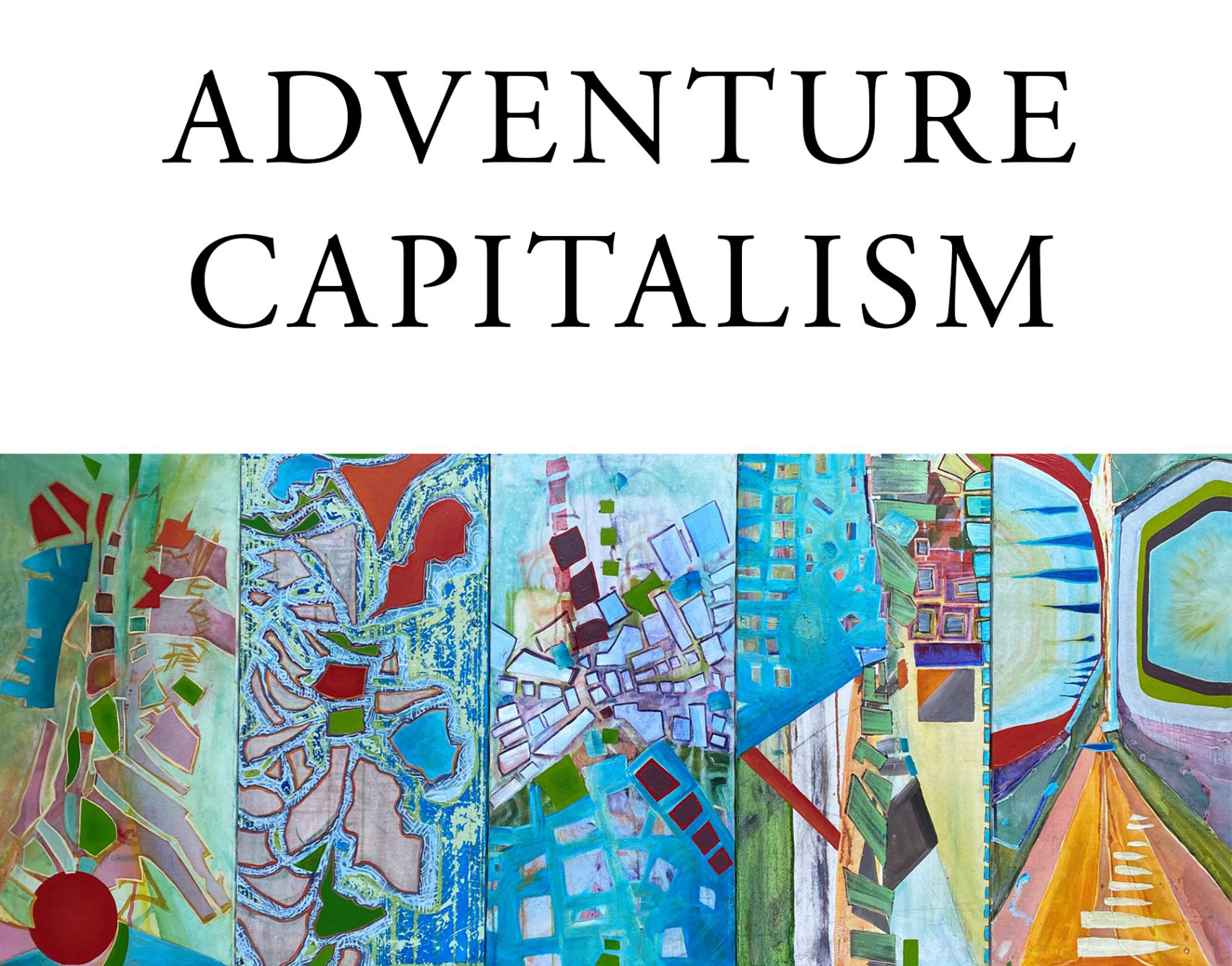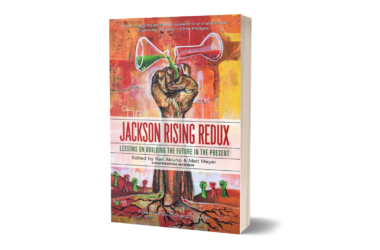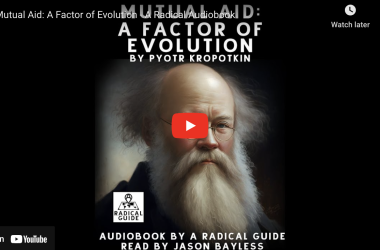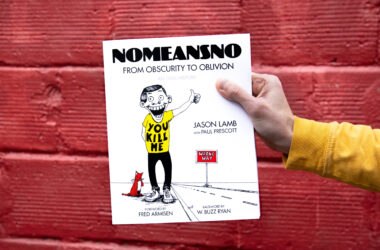by Raymond Craib
Two white, male billionaires have now successfully completed their journies to the outer edges of their respective egos. But while Jeff Bezos and Richard Branson play astronauts, with a check drawn from public coffers, a more troubling space race of the rich is underway here on our modest planet. Inspired by the fictions of Ayn Rand and the over-priced summer camp of Burning Man, starry-eyed Silicon Valley techno-libertarians look to “exit” existing nation-states. Not content with tax havens, gated communities, and outsized political influence, they now wish to “opt-out” of the nation-state itself and build their own private states modeled on corporations. The sovereign nation-state, with its citizens and elections, would be replaced by a private state-like “service provider” into which consumers opt in and purchase only the services that are core to libertarian concerns: militarized property protection.
Just as troubling, contemporary exit strategists are interested in more than merely walking away. Rather, they envision the emergence of a whole series of micro-countries which would produce their own legal and political systems and would compete for citizens, much as companies compete for consumers, by reducing the ‘transaction costs’ of opting out of one polity and of opting in to another. One could think of them as literal ‘market places.’ This is a political project which applies the language of market choice, and the assumption of competition as the natural form of social relations, to government itself, all under the guise of anti-politics and personal liberation. “Don’t argue. Build.” advises the Startup Societies Foundation website. And the place where ground is being broken? Honduras.
After a 2009 military coup d’etat, the country’s new, illegal leaders embraced exit projects and forced changes to the constitution to allow for the creation of private, autonomous cities on Honduran territory. Touted as “special economic zones,” such cities would enjoy near-sovereign autonomy on land ceded to international investors by the state. A host of adventure capitalists (a melange of mostly white and mostly male US social conservatives and oh-so-hip tech libertarians) soon descended, vying to plant the first fencepost. Despite their self-righteous clamor about “freedom,” none of these investors balked at doing business with the corrupt and illegal regime of president Juan Orlando Hernández. Indeed, in 2015 The Seasteading Institute—another exit organization, funded initially by Silicon Valley iconoclast Peter Thiel and directed by the grandson of free market fundamentalist Milton Friedman—invited Hernández to a San Francisco event entitled “Disrupting Democracy.” This was not just a case of tone-deafness. Libertarians may crow about freedom but they have a long history of doing business with authoritarians. Milton Friedman himself was an advisor to and defender of Chile’s dictator Augusto Pinochet. Thiel, more recently, famously declared “democracy and freedom” were not compatible, a refrain that has now been taken up with increasing gusto by various backers of Donald Trump.
Despite the hoopla that sells these projects as advances in freedom, development, and decentralization, with promises of increased security and well-being for all, such experiments have little to offer most Hondurans, which is why they did not vote for them and are currently organizing against them. Once installed, free private cities will be immune from the popular will, making them permanent and extraterritorial spaces on Honduran land. Meanwhile, Hondurans continue to flee the violence that dramatically worsened after the 2009 coup. In a grimly ironic inversion, migrants will end up as “extraterritorials” elsewhere, in spaces where no legal status is provided them, while in their home country from which they were forced to flee a bevy of foreign investors and settlers will create an extraterritorial space granting them extensive autonomous legal status.
More than the astral fantasies of messrs. Branson, Bezos and Musk, it is these planetary forms of privatized extraterritoriality and colonial-style resource-grabbing that cast the most immediate and longest shadow over our collective future. Take the case of the “free” private city currently moving forward on the Honduran island of Roatán. It may be a city but it will not be free. Immigration will be restricted (so much for freedom of movement) and wealth is the basic determinant for membership. Regardless of future electoral outcomes, the city will not be subject to the will or desires of Honduran voters and few, if any, of the articles of the Constitution will apply. Once the sales pitches and the visioning statements, the freedom squawk and the Ayn Rand quotes, have been duly digested, we are left with a barefaced truth: “free private city” is another name for a sovereign, private, exclusive country club in someone else’s country.
The result of territorial exit will not be an opt-in borderless world of entrepreneurial abundance but one of hardened borders, privileged excess, and collective scarcity. The space race that demands our attentions is not the one unfolding in the stratosphere, regardless of how repugnant it is, but instead in those places where generations of colonizers and imperialists, speculators and grifters, have always gone in order to get territorial purchase on their private dreams: Central America and the Caribbean, the island Pacific, and the high seas.
Raymond Craib teaches in the Department of History at Cornell University and is the author of the forthcoming book Adventure Capitalism: A History of Libertarian Exit from the Era of Decolonization to the Digital Age (PM Press/Spectre 2022). Twitter: @raycraib
